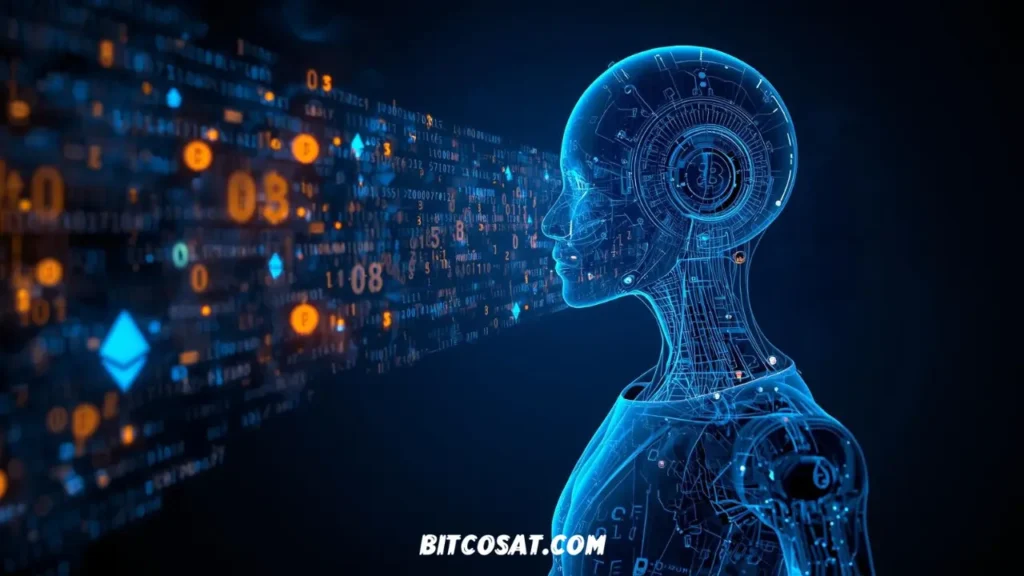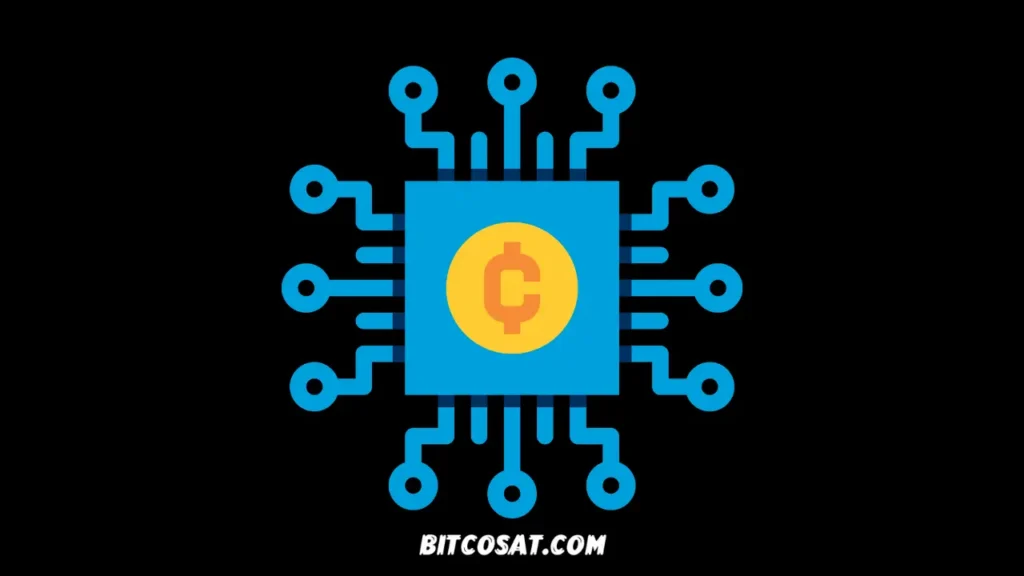The fields of technology and crypto have witnessed rapid developments in recent years, most notably the rise of artificial intelligence (AI) technologies and their potential application in both fields.
This intersection of AI and crypto has sparked the interest of experts and investors, as AI is viewed as potentially “the next revolution in cryptocurrency.”
According to Forbes: At the same time, some are wondering whether AI tools will make investing in cryptocurrencies smarter and easier, or whether they could lead to increased volatility and market manipulation.
Below, we review the impact of artificial intelligence on the crypto market from three perspectives:
- How to use it in market analysis
- The challenges facing its integration with this field
- How accurately it can predict crypto prices
How is AI used in crypto market analysis?

1. Enhance the ability to understand the crypto market and make decisions
Today, AI is enhancing the ability of analysts and investors to understand the crypto market and make faster and more accurate decisions.
Trading platforms use AI algorithms to analyze massive amounts of data in a short time, enabling automated trading operations to be executed at a speed far exceeding that of humans.
2. Execute thousands of trades quickly
For example, thanks to algorithmic trading powered by ai, thousands of trades can be executed per second based on pre-programmed strategies. This is especially important in the crypto market, which experiences rapid and sharp price changes.
3. Spotting hidden patterns in price movements
In addition to speed, AI is distinguished by its ability to deeply analyze the market. By analyzing massive historical data, it can detect hidden patterns in price movements that humans cannot easily observe.
Based on these patterns, AI systems can provide forecasts or predictions regarding potential price trends.
4. Sentiment analysis to read market general mood
Sentiment analysis techniques are also used to read the general market mood by tracking news and social media to determine whether investors’ prevailing mood is optimism or fear, which helps predict price movements.
Sentiment analysis is a type of AI technology used to understand public mood or opinion by analyzing texts written by people, particularly on social media.
5. The use of AI is expanding from institutions to individuals
The use of AI in the crypto market is no longer limited to large financial institutions, but has also extended to individual investors.
Some are now using AI tools like conversational models, ChatGPT, to provide simplified and immediate market analysis.
For example, these models can summarize economic news, interpret complex charts in simple language, and even devise initial trading strategies based on specific market data.
Experts point out that the role of these tools is to support investor decisions, not completely replace the human mind, just as computer programs previously enhanced the work of a generation of financial analysts without eliminating their role.
What are the challenges facing the integration of AI with crypto?
Despite the significant opportunities offered by AI in the crypto world, there are a number of challenges facing the full integration of the two technologies.
1. The technical complexity of integrating AI algorithms
The first of these challenges is technical complexity; integrating AI algorithms with blockchain-based systems is not easy.
Blockchain is an innovative digital technology used to store data in a secure, transparent, and decentralized manner. It forms the underlying infrastructure for cryptocurrencies like Bitcoin and Ethereum.
2. Large computing resources
Furthermore, running AI algorithms requires massive computing resources, while crypto networks sometimes suffer from limited speed and capacity.
This means that combining AI with crypto may make transactions slower or more expensive, especially as the number of users increases.
3. Lack of transparency and trust
Another challenge facing the integration of AI with crypto is the extent to which transparency and trust are achieved. Many advanced AI models operate as a black box, making it difficult to understand the internal mechanisms by which decisions are made.
Conversely, user confidence in the crypto world depends on transparency and verifiability. If an AI system provides an investment recommendation or price prediction without a clear explanation, investors may hesitate to accept it. Users’ inability to understand how the AI arrives at its decisions could raise concerns and discourage some from using it.
4. Challenges of integrating regulatory framework for AI into the crypto market
On the other hand, the regulatory framework for integrating AI with crypto remains a significant challenge. Both technologies are relatively new and rapidly evolving, meaning that laws and regulations have not kept pace with the pace of technological development.
This legal vacuum or ambiguity makes it more difficult to integrate AI with trading platforms or blockchain-based projects, for fear of violating current or future regulatory regimes.
5. Data quality and forecasts
Challenges related to data quality and forecasting cannot be overlooked. The accuracy of AI systems’ outputs depends on the quality of the data they are trained on; if historical data is biased or incomplete, flaws will be reflected in decisions and predictions.
In a highly volatile market such as the crypto market, it can be difficult for AI to predict unexpected events or sudden shocks, such as legislative changes or influential statements from prominent figures.
In fact, experts emphasize that AI systems can make serious errors if they rely on flawed data or models, potentially causing significant financial losses. Furthermore, the lack of transparency in these systems’ decisions can undermine investor confidence and open the door to market manipulation.
Therefore, integrating AI safely and effectively into the crypto world requires carefully addressing these technical, ethical, and regulatory challenges.
Can AI accurately predict crypto prices?

Many are eager to answer this pivotal question: Can AI accurately and reliably predict the price movement of Bitcoin or other cryptocurrencies?
Researchers have already achieved some limited success in this field. For example, about a decade ago, the Massachusetts Institute of Technology (MIT), an American institute that publishes cutting-edge scientific and technical research, developed a machine learning algorithm that predicts Bitcoin prices within seconds, and the team successfully doubled its investment in just 50 days.
Such results demonstrate the promising potential of using mathematical models and machine learning in automated trading to generate quick profits.
Accurate prediction difficulty
However, AI and financial experts emphasize that these cases remain exceptional and do not reflect a general ability to accurately predict.
As one Google AI expert says: “You can always analyze historical data, but you will never be able to predict the future with complete accuracy. Analysts have tried for years, and no one can always accurately predict prices.”
Probabilities not guarantees price development
In fact, while AI excels at detecting potential trends and patterns based on current data, it lacks the ability to comprehensively understand all the influencing factors outside the data, such as political developments or investor psychology.
Therefore, any predictions it makes remain within the realm of possibilities, not absolute guarantees. Even intelligent language models like ChatGPT acknowledge that they lack instantaneous accuracy in price predictions, and that the predictions they provide are merely hypothetical scenarios for guidance.
Therefore, AI remains a useful tool for anticipating trends in the cryptocurrency market, but it does not guarantee accurate prediction of future prices.

